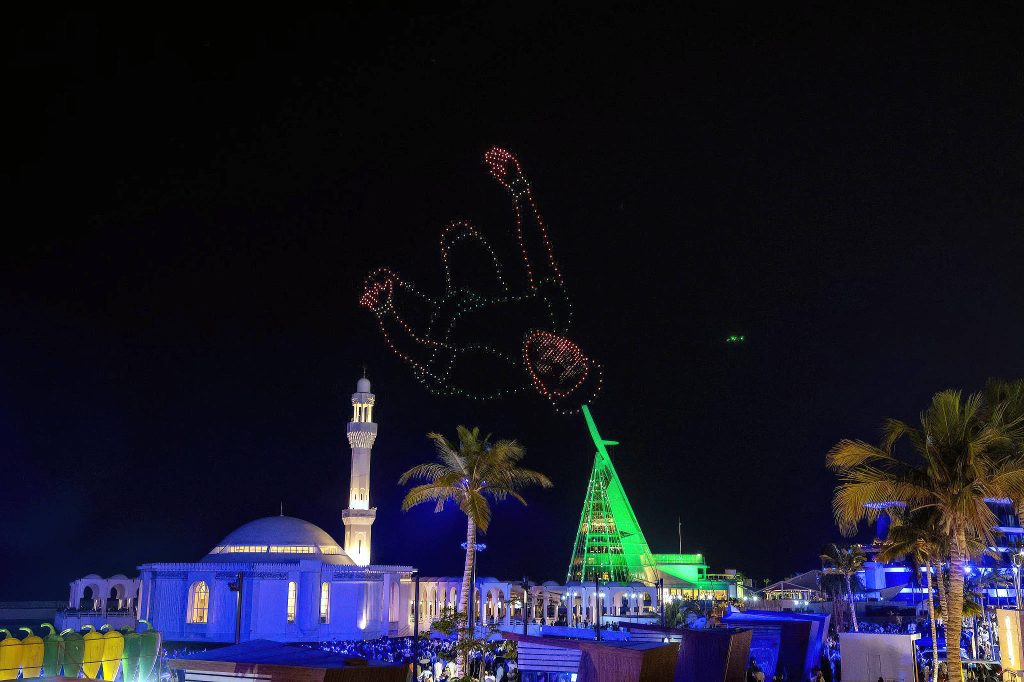Just days after FIFA confirmed Saudi Arabia as the host of the 2034 World Cup, it was announced that alcohol would be banned inside stadiums when the country hosted the event.
While this isn't the first time this has happened, many match-going football fans enjoy a beer or two at the football and being unable to do so is unlikely to be received well by the masses, particularly travelling England supporters.

Why have Saudi Arabia banned alcohol in stadiums at World Cup 2034?
Well, the answer to that is very simple. Saudi Arabia is a country in which Islam is the dominant faith – a religion in which drinking alcohol is strictly forbidden.
In fact, alcohol has been banned in the country since 1952, when the then-king Ibn Saud passed the law needed to do so.
However, since January of this year, one shop in Riyadh – one of the eight hosting cities – has been granted permission to sell alcohol to non-Muslim diplomats under strict regulations.
This suggested that there was at least a possibility that alcoholic drinks would be permitted at the 2034 World Cup, but that does not appear to be the case at this moment in time.
IT’S OFFICIAL: FIFA ANNOUNCES SAUDI ARABIA AS THE FIFA WORLD CUP 2034™️ HOST NATION ???#WelcomeToSaudi34#Saudi34 pic.twitter.com/2YjTLYvpoA
— Saudi Arabia FIFA World Cup 2034™️ (@Saudi2034) December 11, 2024
A reminder of Qatar World Cup 2022
While the news of no alcohol in stadiums at the Saudi World Cup 2034 will likely be far from a popular development, it is not the first time those restrictions have been in place. As recently as 2022, Qatar banned alcohol from their stadiums, and in far worse circumstances at that.
Ahead of the tournament, travelling supporters had been told that alcohol would be permitted within stadiums under specific regulations; however, just 48 hours before the 2022 World Cup began, the host nation changed their mind and banished all alcohol from their venues.
The unexpected nature of the decision not only enraged football supporters around the world but also cost FIFA millions in unused beer.
Despite the backlash, some undeniable advantages occurred as a result. Namely, with supporters perhaps more sober than ever before, violence was far less common and the general atmosphere at the tournament was a pleasant one.
So, perhaps no alcohol at the Saudi World Cup 2034 will be a good thing after all.
FIFA unlikely to oppose alcohol ban at Saudi World Cup 2034
Likely to be a result of the great financial loss outlined above at the 2022 Qatar World Cup, FIFA will reportedly not oppose Saudi Arabia's alcohol ban in any way, whether that be publicly or privately.
That should hardly be surprising given how much funding FIFA has received in recent years from Saudi Arabia. If there were a dispute between the two parties to disrupt that relationship, more sizeable financial pain would fall at the feet of FIFA.
It is therefore extremely unlikely that the hosting nation's stance on this topic will change ahead of the tournament, however, less is known regarding hotels and fan parks.
At the time of writing, alcohol is banned in those locations too, but whether it remains so, we will have to wait and see.
A night of pure joy to celebrate #Saudi34 at @MDLBEAST ???
Just ask @Y20 @neymarjr @otaviomonteiroo @angelogabriel ?#WelcomeToSaudi34 pic.twitter.com/kTka6bXdQL
— Saudi Arabia FIFA World Cup 2034™️ (@Saudi2034) December 13, 2024
FGG says: A shock to the system for travelling England fans
Regardless of your personal opinion on the reported alcohol ban at the Saudi World Cup 2034, one thing is for sure. Travelling England fans are not going to take to the news well.
In England, and the entirety of the United Kingdom and Ireland for that matter, drinking alcohol has always been and likely always will be a huge part of football culture. Whether it is getting some pre-match beers at the pub, or a cheeky pint at half-time – alcohol and football in Britain are practically synonymous.
That simply will not be possible at the Saudi World Cup 2034, and it will be interesting to see how Three Lions supporters take to that news.
